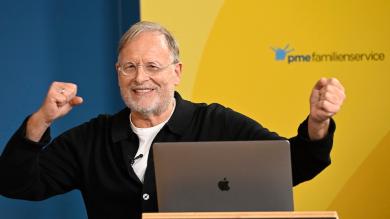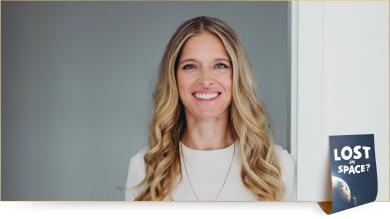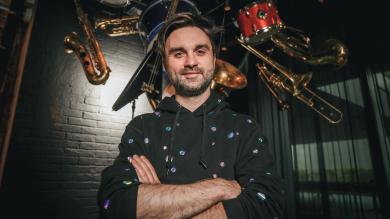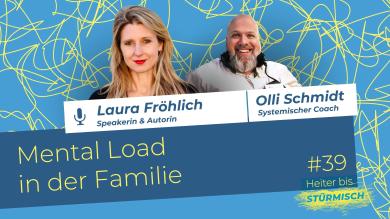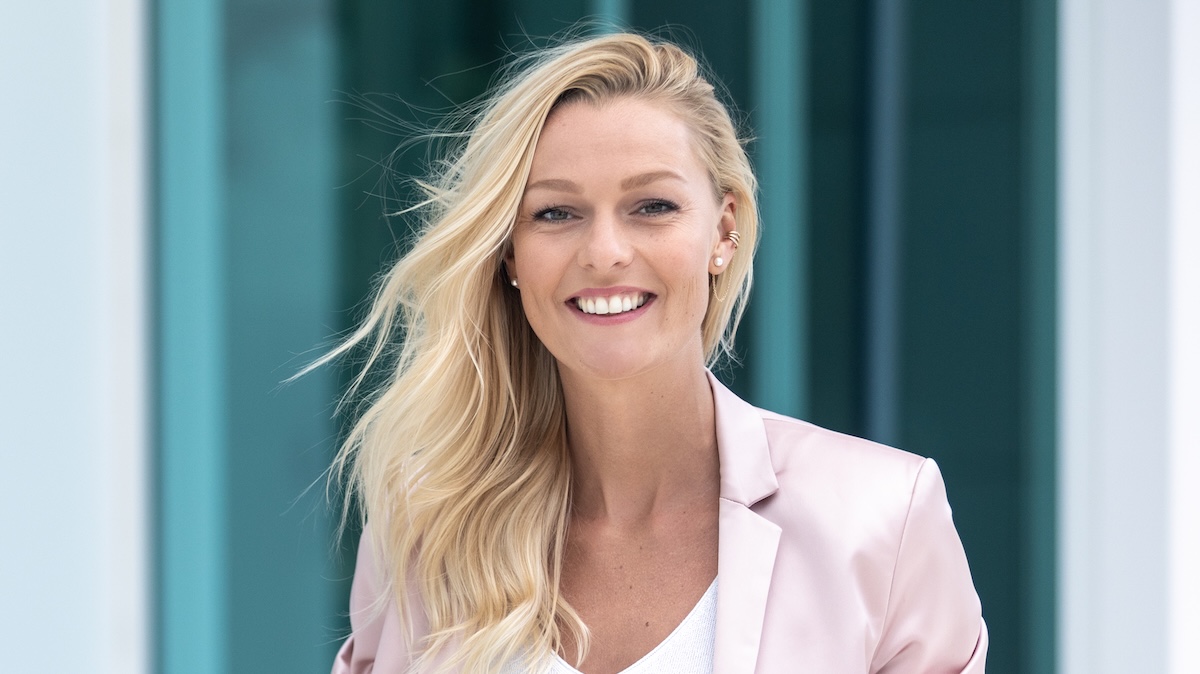
Miriam Höller: "Life cannot be negotiated with"
"Mental healing takes a long time, and during this time you are on very thin ice."
(From the book "Life is unfair - and that's a good thing")
What does it feel like when your life seems to shatter from one second to the next? Miriam Höller knows this moment from her own experience: as a stuntwoman, she was used to taking risks and courageously pushing boundaries. But she couldn't prepare herself for the biggest challenges of her life - the loss of her partner, the abrupt end of her career and a future that had to be completely rethought. In this interview, she talks about how she dealt with her crises, why setbacks can also be opportunities - and why resilience has long been more than just a buzzword. Interview: Christin Müller
The title of your book is "Life is unfair - and that's a good thing". How do you explain this statement to people who are struggling with a stroke of fate themselves?
I wouldn't explain this statement, but rather give people courage and confidence - that one day they will be able to make peace with the painful things that have happened to them. That was exactly what drove me in my own healing process. I explain how I achieved this in my book.
If someone had pressed a book with this title into my hand when I was at my worst, I would probably have thrown it away in anger. But the title is intended to arouse curiosity - about the possibility that we are capable of growing in the face of our greatest challenges.
And this is the question that often arises: do we reluctantly stay put and break down in the face of the challenge because our lives have turned out completely differently than we imagined? Or do we follow the curiosity that we can often achieve more than we think - and take the often uncomfortable path of healing, which will be the more valuable one in the long run.
You yourself have experienced several crises at the same time. How did you deal with it when your entire previous life collapsed like a house of cards?
Like many others, I initially just functioned in shock. When the funeral was over and calm slowly returned, I began to deny what had happened.
It was only later that I had to face the emotions that come with great loss - first and foremost anger. I tried to negotiate with life, but life does not negotiate with itself. So I had to learn to accept what was irrevocably lost - and at the same time recognize what was still worth fighting for.
I was able to understand what I had to let go of - and what I could still shape from now on.
After many years, I finally found peace. Because despite all the pain, destruction and loss, I found meaning in it: Today, I get to encourage other people to never give up - but to fight for themselves and their lives.
What were your first concrete steps out of the deepest crisis?
Asking for help was one of the most important steps on my path to healing. For a long time I thought I shouldn't show any weakness, after all I was known for my strong demeanor. I also thought I had to do everything on my own - but going through crises together can strengthen relationships.
That's why I would always advise seeking out conversations - especially with people who have successfully overcome crises themselves. And to get better at asking questions. Because only those who ask questions will get answers that really help you move forward.
What was the turning point for you when you felt: "I'm no longer the same, but I've become stronger"?
For a long time, my ambition was to get so healthy again that I could celebrate my big comeback as a stuntwoman. But at some point I realized that there are limits that even I, as an extreme sportswoman, can't push.
This allowed me to reinvent myself. I gave up my passion, stunt work, with a heavy heart - and gave my first speeches instead.
When it came to resilience, I realized how many people are looking for support and guidance right now. And I realized that there are gifts in every life story - the valuable lessons of someone who has struggled.
That became my motivation: to better understand resilience and to share my experiences with others. Today, this is my greatest strength - empathy towards people who are looking for a confident way of dealing with change.

Stuntwoman and model: all-round talent Miriam Höller at a daring action shoot. Photo: Wolfgang Lienbacher
The term resilience is currently omnipresent. What does it mean to you?
It's no wonder that this term can be heard everywhere at the moment - the longing for inner strength is growing in these challenging times. Resilience refers to a person's psychological resistance - the ability to cope with crises, stress and challenges and even emerge stronger from them. Resilience is the inner strength not to break despite stress - but to grow with it.
How do you build up mental resilience when you hardly have any strength left?
By realizing that resilience does not mean having to fight alone, but also consists of recognizing and using one's own environment as a stabilizing factor. We often feel alone - but we are not. It is our job to recognize the helping hands around us and to have the courage to reach out to them.
How can you learn to accept setbacks without letting them throw you off course? What advice do you have for affected people?
In most cases, setbacks throw us off course. They not only turn our lives upside down, but also shake us awake. And this is precisely where the first important lesson lies: to wake up - to what life really means.
Where will I invest my time in the future? Who are my most valuable people? What do I really want in my life? Such questions can only be answered in an "awakened" state.
We should therefore not perceive setbacks as something bad, such as failure, but rather as a gift. They can not only bring clarity - but also the great opportunity to grow personally.
What tools help you to deal better with mental pressure?
In concrete terms, I am very conscious of my energy levels - because I have learned that I can only make a difference and create something when I am full of energy.
I spend a lot of time alone and do things that bring me joy - like enjoying a spa day, riding my motorcycle or simply sitting on the beach.
We humans are all different and draw strength from different sources. But we have one thing in common: we often lose too much energy because we don't consistently act according to our own wishes and goals.
What can you do to specifically train your mental strength? Do you have any tips?
Read books on this topic. Listen to podcasts. Talk to people who are living life to the full.
Learn to challenge yourself. Even small, courageous decisions strengthen our self-confidence - and this is crucial: because when big challenges come into our lives, we can rely on ourselves.
So be courageous. Live. Learn. Grow.

Miriam Höller: "Life is unfair - and that's a good thing" was published by Econ in 2025.
We are giving away 12 times 1 ticket for Health Day 2025
Information about Health Day 2025 (Link opens in a new window)
09 October 2025 | 2:00 pm - 6:00 pm Organizer: pme Familienservice GmbH.
Conditions of participation in the competition: "Health Day 2025" on social media
How you can win: The prize draw for 12 x 1 ticket for Health Day 2025 on Instagram, Facebook and LinkedIn starts on 09.09.2025 at 14:00 and ends on 30.09.2025 at 23:59.
Eligible persons
Only persons of legal age who are resident in Germany are eligible to participate. Each user can only participate for him/herself (participation for others is excluded).
Employees of pme Familienservice are excluded from participation.
Legal recourse is excluded with regard to the implementation of the competition and the prize draw. The winners will be selected by a jury from all the comments submitted.
Procedure
Anyone who follows the account: pme Familienservice on Facebook or Instagram, pme Lernwelten or betreuung.familienservice on Instagram or the LinkedIn account of pme Familienservice , likes the post and writes a comment on the question: "Which speaker are you most looking forward to?" will be entered into the competition and the draw.
Notification
The winner will be informed via Instagram, Facebook or LinkedIn private message and linked in a comment under the competition post, at the latest two days after the winner has been determined.
To send the prizes, the e-mail address will be requested via the direct message function or by e-mail. The participant is responsible for the accuracy of the data.
The pme Familienservice is entitled to make changes to the prize. A cash payment or transfer of the prize is unfortunately not possible. The winner must contact us within 2 working days via a private message to our Instagram/Facebook or LinkedIn page with his/her address details.
If a winner does not respond within this period, the prize will be raffled again among all participants.
Data usage
The data collected from participants/winners (name and postal address, if applicable) will not be passed on to third parties, but will only be used for the competition and for notifying the winners and will then be deleted. Winner data (name and postal address) will only be passed on to the shipping service provider for the purpose of sending the prizes and will be deleted immediately afterwards.
Further information on the handling of personal data at pme Familienservice can be found in the data protection information (https://www.familienservice.de/datenschutz).
Instagram Disclaimer
The pme Familienservice competition is not affiliated with Meta or LinkedIn and is in no way sponsored, supported or organized by Meta or LinkedIn. The organizer of the competition and recipient of the information provided for participation is not Meta or LinkedIn, but pme Familienservice GmbH, Flottwellstr. 4-5, 10785 Berlin. By participating in the competition, participants accept these conditions of participation.
Further legal information
A violation of the conditions of participation entitles us to exclude the respective participant from participation. This applies in particular if the participant provides false information or if photos or other content used (e.g. comments) violate applicable law or the rights of third parties. The same applies to comments that could be regarded as glorifying violence, offensive, harassing or degrading or that violate social decency or applicable law in any other way. The use of automated programs or comparable measures to manipulate the competition will result in exclusion from participation.
The pme Familienservice reserves the right to exclude participants from the competition without giving reasons in the event of suspected manipulation. We reserve the right to terminate the competition prematurely in whole or in part at any time, even without observing deadlines, or to change its course if it is not possible to guarantee the proper execution of the competition for technical (e.g. manipulation of or errors in software/hardware) or legal reasons (e.g. prohibition by Instagram).
If the excluded participant is a winner who has already been drawn, the prize may be subsequently revoked.
The use of automated programs or comparable measures to manipulate the competition will result in exclusion from participation. The pme Familienservice reserves the right to exclude participants from the competition without giving reasons if it suspects manipulation.
Participants warrant that they are the authors or creators of their submitted entries and that they do not infringe any third-party rights. The participants further assure that they have obtained the necessary rights of use for all third-party content whose use requires the granting of rights, including the right that the content may also be used by the organizers within the framework of the competition and within the scope of these conditions of participation. The organizers are not obliged to check the content provided by the participants (e.g. texts) for potential infringements of third-party rights. However, the organizers are entitled to reject content if, in their reasonable opinion, it is unlawful or contrary to public decency.
The rights to the content and competition entries remain with the participants, subject to a claim in accordance with the following option right.




